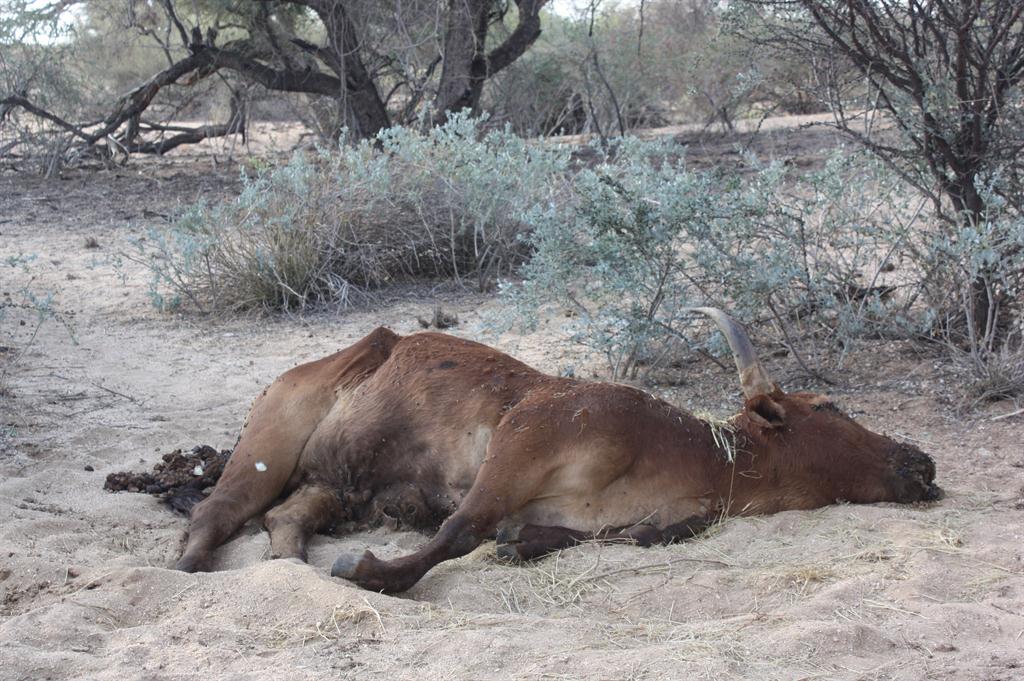Southern Africa to become drier
Southern Africa is expected to become drier leading this year as rain forecasts continue to disappoint.
A recent outlook prepared by the Climate Centre Outlook for the first week of January said crop and livestock production throughout northern Namibia were bound to be negatively affected.
“Many consecutive weeks of below-average rainfall have strengthened rainfall deficits and could further negatively impact cropping and pastoral activities throughout southern Angola, northern Namibia, western Zambia, Botswana, western Zimbabwe, and South Africa,” the report said.
Despite the recent moisture recovery in south-western Africa, the performance of the southern African rainy season has been quite poor and has mimicked the early to mid-stages of the poor 2015-2016 season.
According to the report, many countries have experienced a pronounced delayed start of the rainy season, followed by erratic, infrequent and poorly distributed rainfall over the past three months.
“Many local areas in Angola, Namibia, Zambia, Botswana, and South Africa have experienced at least eight consecutive weeks of suppressed precipitation according to satellite estimated rainfall,” it said. “An analysis of recent remote sensing products indicates that unfavourable ground conditions have continued to worsen over southern Angola, northern Namibia, western Zambia, Zimbabwe, Botswana, and eastern South Africa,” the report added.
Professor Francois Engelbrecht, chief researcher for climate studies, modelling and environmental health at the South African Council for Scientific and Industrial Research (CSIR), confirmed the report findings in a recent interview with Farmer's Weekly.
“Southern Africa is projected to become generally drier, with more El Niño-related droughts. East Africa is projected to become generally wetter.
Oppressive temperatures and heatwave-related events are projected to occur more frequently across the southern African region,” he said. Consequently, the economic environment will be affected, as shifts in farming activities are inevitable.
“Southern Africa has been identified by the Special Report on Global Warming of 1.5 degrees Celsius as one of the regions in the world where climate change will impact most negatively on economic growth, considering the widespread impact on the agriculture sector,” said Engelbrecht.
OGONE TLHAGE
A recent outlook prepared by the Climate Centre Outlook for the first week of January said crop and livestock production throughout northern Namibia were bound to be negatively affected.
“Many consecutive weeks of below-average rainfall have strengthened rainfall deficits and could further negatively impact cropping and pastoral activities throughout southern Angola, northern Namibia, western Zambia, Botswana, western Zimbabwe, and South Africa,” the report said.
Despite the recent moisture recovery in south-western Africa, the performance of the southern African rainy season has been quite poor and has mimicked the early to mid-stages of the poor 2015-2016 season.
According to the report, many countries have experienced a pronounced delayed start of the rainy season, followed by erratic, infrequent and poorly distributed rainfall over the past three months.
“Many local areas in Angola, Namibia, Zambia, Botswana, and South Africa have experienced at least eight consecutive weeks of suppressed precipitation according to satellite estimated rainfall,” it said. “An analysis of recent remote sensing products indicates that unfavourable ground conditions have continued to worsen over southern Angola, northern Namibia, western Zambia, Zimbabwe, Botswana, and eastern South Africa,” the report added.
Professor Francois Engelbrecht, chief researcher for climate studies, modelling and environmental health at the South African Council for Scientific and Industrial Research (CSIR), confirmed the report findings in a recent interview with Farmer's Weekly.
“Southern Africa is projected to become generally drier, with more El Niño-related droughts. East Africa is projected to become generally wetter.
Oppressive temperatures and heatwave-related events are projected to occur more frequently across the southern African region,” he said. Consequently, the economic environment will be affected, as shifts in farming activities are inevitable.
“Southern Africa has been identified by the Special Report on Global Warming of 1.5 degrees Celsius as one of the regions in the world where climate change will impact most negatively on economic growth, considering the widespread impact on the agriculture sector,” said Engelbrecht.
OGONE TLHAGE




Comments
Namibian Sun
No comments have been left on this article